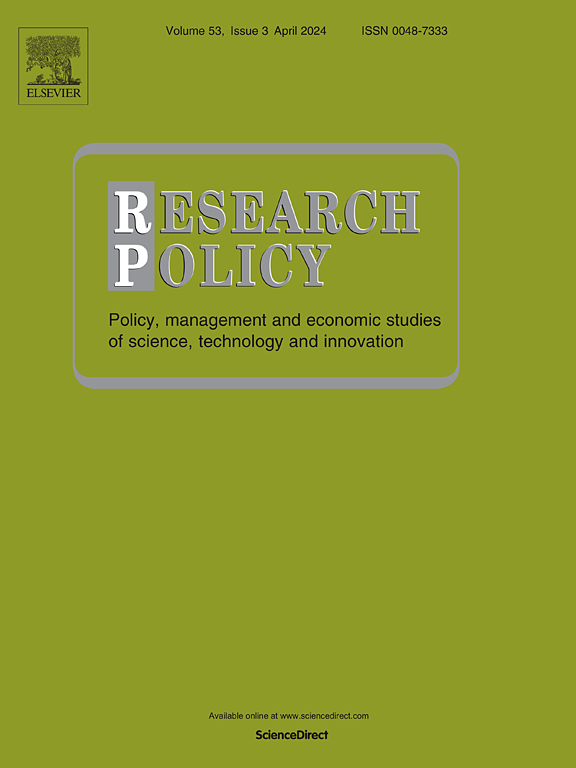The paradox of competition: How funding models could undermine the uptake of data sharing practices
IF 8
1区 管理学
Q1 MANAGEMENT
引用次数: 0
Abstract
Although it is beneficial to scientific development, data sharing is still uncommon in many research areas. Various organisations, including funding agencies that endorse open science, are working to increase uptake. However, it is difficult to estimate the large-scale implications of different policy interventions on data sharing by funding agencies, especially in the context of intense competition among academics. In this study, we developed an agent-based simulation model to examine the impact of different funding schemes (e.g., highly competitive large grants versus distributive small grants), and the intensity of incentives on the uptake of data sharing by academic teams that adapt their strategy according to the context. Our results show that, in the short term, more competitive funding schemes may lead to higher rates of data sharing, but lower rates in the long term because the uncertainty associated with competitive funding negatively affects the cost/benefit ratio of data sharing. Conversely, more distributive grants imply a drastic reduction in initial uptake compared to more competitive funding schemes because they do not allow academic teams to cover the costs and time required for data sharing. However, they ensure higher long term uptake. Our findings suggest that any attempt to reform reward and recognition systems in line with open science principles must carefully consider the potential impact and long-term side effects of their proposed policies.
竞争的悖论:资助模式如何破坏数据共享实践的吸收
虽然数据共享有利于科学的发展,但在许多研究领域,数据共享仍不常见。各种组织,包括支持开放科学的资助机构,都在努力提高对开放科学的吸收。然而,很难估计不同政策干预对资助机构数据共享的大规模影响,特别是在学术界激烈竞争的背景下。在这项研究中,我们开发了一个基于代理的模拟模型,以检查不同资助计划(例如,高度竞争的大额资助与分配性小额资助)的影响,以及学术团队根据环境调整策略时对数据共享的激励强度。我们的研究结果表明,在短期内,更具竞争性的资助方案可能会导致更高的数据共享率,但在长期内会降低数据共享率,因为与竞争性资助相关的不确定性会对数据共享的成本/效益比产生负面影响。相反,与更具竞争性的资助计划相比,更具分配性的资助意味着初始吸收的急剧减少,因为它们不允许学术团队支付数据共享所需的成本和时间。然而,它们确保了更高的长期吸收率。我们的研究结果表明,任何根据开放科学原则改革奖励和认可系统的尝试都必须仔细考虑其拟议政策的潜在影响和长期副作用。
本文章由计算机程序翻译,如有差异,请以英文原文为准。
求助全文
约1分钟内获得全文
求助全文
来源期刊

Research Policy
MANAGEMENT-
CiteScore
12.80
自引率
6.90%
发文量
182
期刊介绍:
Research Policy (RP) articles explore the interaction between innovation, technology, or research, and economic, social, political, and organizational processes, both empirically and theoretically. All RP papers are expected to provide insights with implications for policy or management.
Research Policy (RP) is a multidisciplinary journal focused on analyzing, understanding, and effectively addressing the challenges posed by innovation, technology, R&D, and science. This includes activities related to knowledge creation, diffusion, acquisition, and exploitation in the form of new or improved products, processes, or services, across economic, policy, management, organizational, and environmental dimensions.
 求助内容:
求助内容: 应助结果提醒方式:
应助结果提醒方式:


